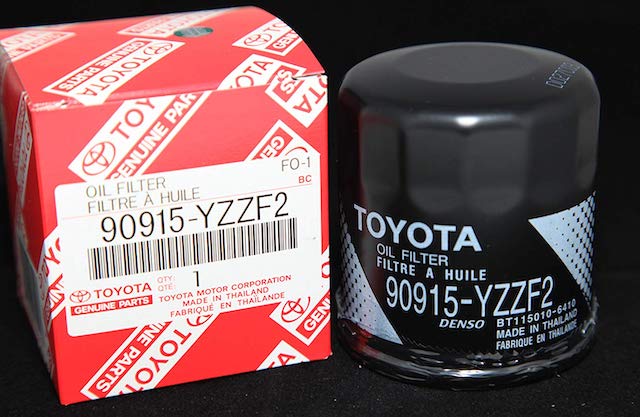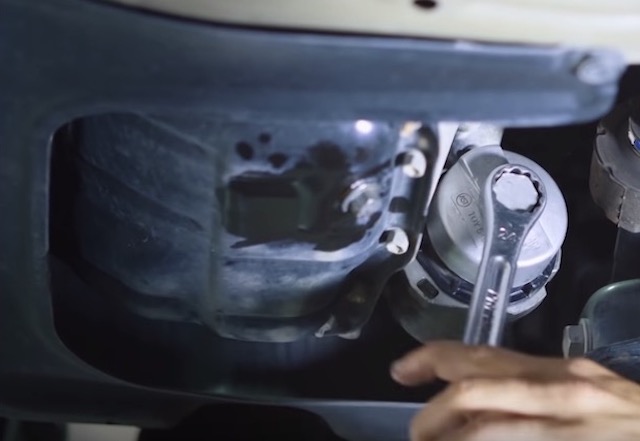What Is An Oil Filter And Why Is It Important?
The oil filter is one of the disposable parts on your car. Oil filters should be replaced more often than any other part on your Toyota. So it’s worth taking a few minutes to learn a bit about oil filters and how they help prolong your engine’s life.
What is an Oil Filter?

An oil filter is a cylinder-shaped metal canister that contains a pleated filter material. It’s attached to the engine, and located in an easily accessible place. Sometimes the oil filter is located in a conspicuous place when you open the hood. If it's not on top of the engine bay, you can find it under the engine bay.
As the motor oil circulates through the engine, it accumulates contaminants (more specifically, tiny particles like metal, dirt, etc.). If the oil was unfiltered, it would eventually become too saturated with contaminants. This would result in the dirty oil damaging the components within the engine (like the oil pump or bearings). The sole purpose of having oil in the engine is to lubricate the moving parts at all times, so they don't wear out quickly. So contaminated oil is pretty much useless.
The oil filter is solely designed to trap as many particles as possible before sending the oil back to the engine. In other words, the oil filter keeps the motor oil clean for as long as possible to keep it from damaging the components within the engine.
What Happens When an Oil Filter Gets Too Clogged Up?
Toyota recommends changing your oil filter every time you change the oil in your car. It’s because an oil filter that’s too clogged up is bad news.
Typically, when a filter gets too clogged up, it restricts the flow of whatever it is filtering. For example, when your furnace filter becomes too dirty, not as much air goes through it, and the furnace can't heat up your house that well anymore. Oil filters don't work like that. It has a unique design where there's a bypass valve that allows the oil to run around the pleated filter when the filter is too dirty. It's designed like that because letting dirty oil circulate through the engine is better than depriving the engine of any oil. Basically, the longer you wait to replace a dirty oil filter, the more damaged your engine will get from being subjected to the contaminants the oil filter failed to trap.
It’s important to note that you should still replace your oil filter on a regular basis. Just because the oil will still run around a dirty filter doesn't mean it's okay to skip oil filter changes. Constantly running dirty oil through your engine will shorten its lifespan.
Signs That Your Oil Filter Needs to be Replaced

Image Credit: Valvoline
There are usually no immediate signs that your oil filter needs to be replaced. If changing the oil and filter are neglected, usually the first symptoms show up as the mileage on the car starts to increase. Those symptoms may include:
- Excessive oil consumption (burning oil)
- Rod knock, due to bearing wear
- Lack of power due to loss of compression caused by worn piston rings and cylinder walls.
The problem with any of these symptoms is that there is no easy fix. Usually any one of these symptoms means that a new engine is needed. Obviously, this is much more expensive than the cost of changing the oil over the years.
Ordering OEM Replacement Oil Filters
Dealerships aren’t the only places that sell OEM oil filters. You can order one online. In fact, you’re likely to find the best prices online, especially if you order from us. We offer steep discounts for all kinds of genuine OEM Toyota parts, including oil filters. Check out our catalog of oil filters to see how much money you can save on one!

